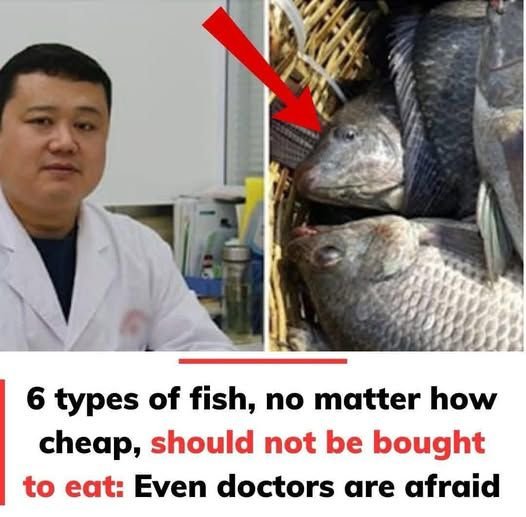Fish is often considered a healthy source of protein and essential nutrients, but not all fish are safe to eat. Due to pollution, unethical farming practices, and high levels of toxins, some fish varieties pose serious health risks. Experts, including doctors and nutritionists, warn against consuming certain types of fish, no matter how affordable they may be. Being aware of these dangerous fish can help protect your health and ensure that you make better dietary choices.
One of the biggest concerns is fish raised in contaminated environments. Farmed tilapia, for instance, is often grown in overcrowded ponds where the water contains high amounts of pollutants, antibiotics, and pesticides. These chemicals can accumulate in the fish’s body and ultimately make their way into your meals. Similarly, imported catfish is another risky choice, as many farms use harmful chemicals and unregulated antibiotics to boost growth. Consumption of such fish over time may lead to long-term health issues like inflammation and antibiotic resistance.
Another significant hazard comes from fish with high mercury levels. Fish such as king mackerel, swordfish, and certain types of tuna contain dangerously high mercury levels, which can lead to neurological damage, especially in pregnant women and young children. Consuming these fish frequently may increase the risk of cognitive impairments, heart problems, and kidney damage. Additionally, some bottom-feeding fish like eel and certain freshwater species are prone to accumulating heavy metals and toxins from polluted waters, making them unsafe for consumption.
Disclaimer: The information provided in this article is for educational purposes only and should not be considered medical advice. Always consult a healthcare professional or nutritionist before making dietary changes. When purchasing fish, opt for those sourced from clean waters and verified sustainable sources to ensure your safety and well-being.


